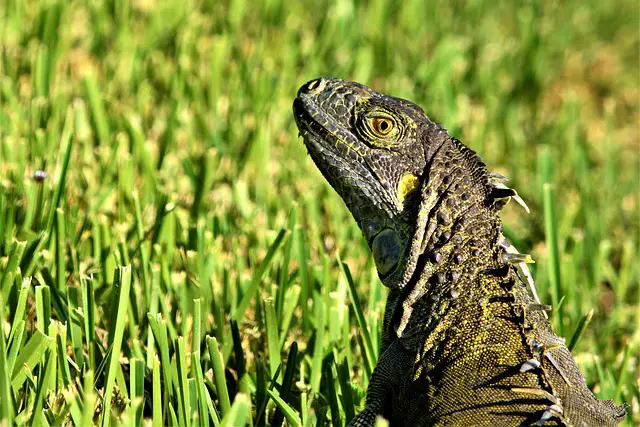Have you ever seen a black lizard in your backyard and wondered if it was poisonous or dangerous? Being wary of creatures we don’t know much about is normal, especially when exotic or unfamiliar. In this blog post, we’ll look at black lizards and answer the question: are black lizards poisonous?
Are black lizards poisonous?
The short answer is no; most black lizards are not poisonous.
However, one species of lizard that can be found in certain parts of the world is venomous—the Gila Monster.
This lizard species has unique features that distinguish it from other black lizards. It has bright yellow-orange bands across its body and large scales on its head and tail.
The Gila Monster uses its venomous bite to defend itself against predators but rarely bites humans unless provoked or threatened.
Black Lizards.
Black lizards are a diverse family of reptiles and have been found to encompass over a thousand different species.
While none of them are known to be poisonous, some have venomous saliva, which they use when defending themselves against predators or hunting prey.
This venomous saliva is usually mild and not considered dangerous to humans. Still, if bitten, the affected area should be washed thoroughly with warm water and soap, and medical attention should be sought.
It is important to remember that while black lizards don’t typically cause any harm, it is always wise to exercise caution when handling these animals.
Most other black lizards are harmless and non-venomous.
Some popular species include Bearded Dragons, Leopard Geckos, Tokay Geckos, and Uromastyx Lizards.
These lizards typically eat insects such as crickets and mealworms but can also eat fruits and vegetables like apples and lettuce.
They usually require warm temperatures to survive, so they need access to heat lamps or basking spots in their enclosures.
It is important to note that some species of black lizards may have venom glands that produce mild toxins for defensive purposes; however, these toxins are not considered dangerous enough to humans to be classified as “poisonous“.
Additionally, most people do not own these lizards as pets due to their rarity and difficulty keeping them healthy in captivity.
Are black lizards dangerous?
The answer to whether or not black lizards are dangerous depends on the species.
Some common lizards, such as anole and gecko, are harmless and generally considered beneficial to have around your home because they eat pests like insects.
On the other hand, larger ones, such as monitor lizards, pose more of a threat if provoked and should be avoided as pets if you don’t have experience with them.
Furthermore, some black lizards may carry diseases that can be transmitted to humans or other animals, so it’s essential to take proper precautions if you encounter one.
Ultimately, no matter the species of black lizard you come across, your safest bet is always to leave it alone or contact a professional who can adequately handle the situation.
Are Black lizards rare?
Black lizards are not considered particularly rare in the reptile world. However, they are often sought after due to their unusual appearance.
In truth, any lizard can turn black, given certain conditions.
For example, certain species, including Mediterranean geckos (Tarentola mauritanica) and anoles (Anoilis sp.), may darken when exposed to cooler temperatures.
Black lizards produced through this process are generally relatively healthy. Still, it can be difficult for the untrained eye to differentiate them from those born with genetic mutations that are harmful or potentially detrimental to long-term health.
In other words, it is essential to purchasing a black lizard from a reputable source that can provide certification and assurance that the animal was bred correctly and naturally.
Are black lizards good for the garden?
Black lizards, also known as Anoles, can play an essential part in a garden’s ecosystem.
They are natural predators of smaller insects, such as aphids and caterpillars, which can damage plants and gardens.
Also, lizards feed on larger invertebrates, such as slugs and snails. Therefore, allowing a few black lizards to roam around your garden is a great way to efficiently control pest populations without resorting to more drastic measures like chemical sprays.
Having these lizards in your garden also brings the added benefit of enjoying them out in nature; they are fascinating creatures with their dynamic behavior and bright color patches that vary from species to species.
Conclusion
In conclusion, while one lizard species is venomous—the Gila Monster—most other black lizards are not considered poisonous or dangerous to humans. So if you have spotted a black lizard in your backyard, there’s no need to worry; chances are it will just run away if it feels threatened.
As always, it’s best to use caution when interacting with any wild animal—just in case.




